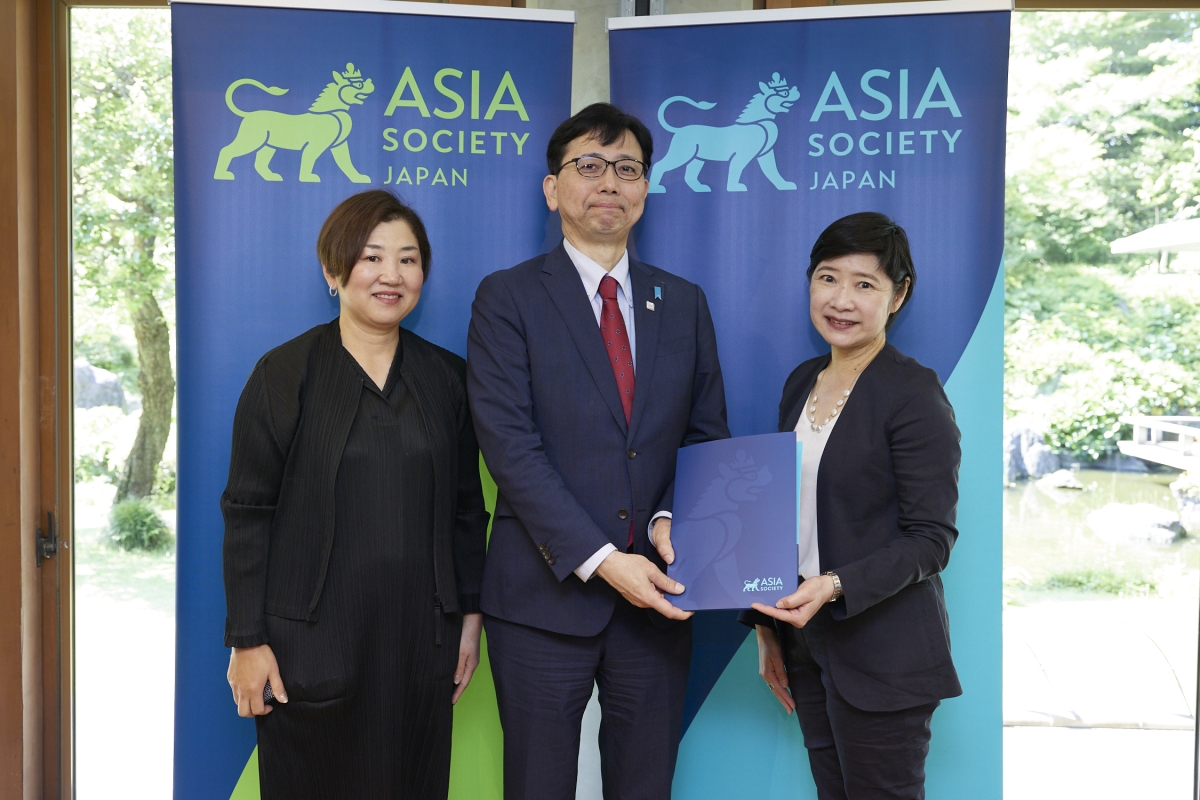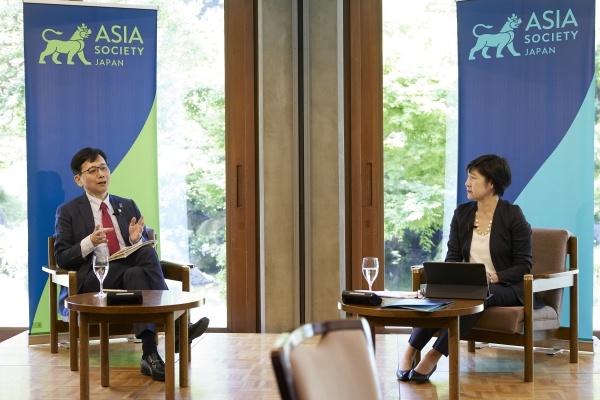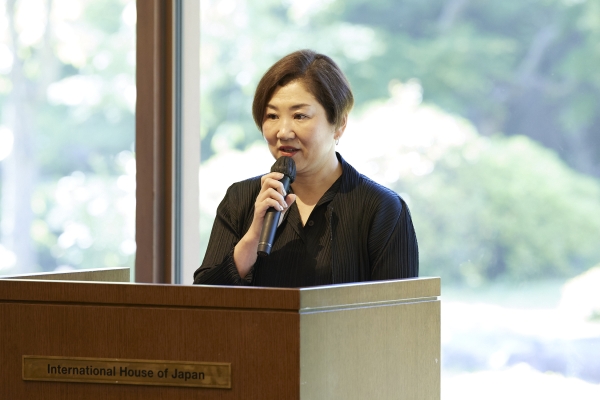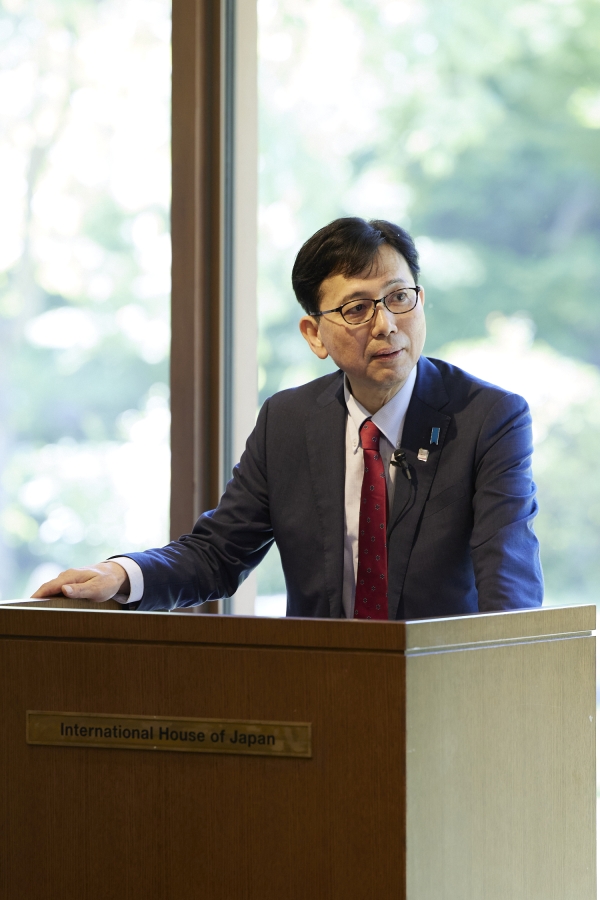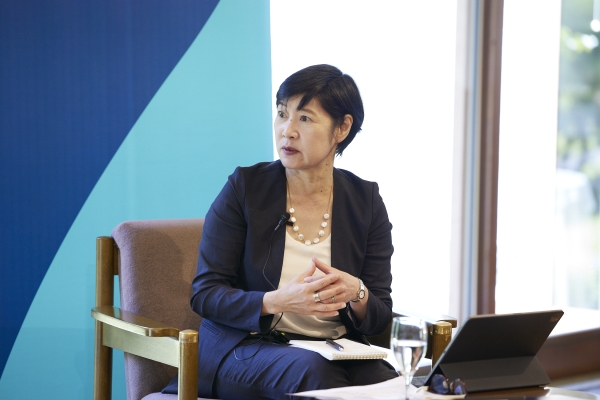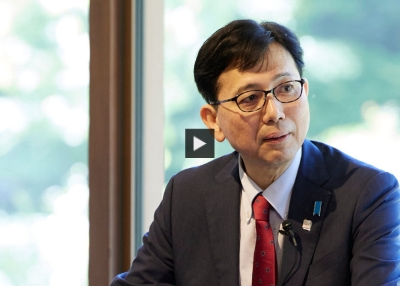G7 Hiroshima Summit: What to Watch, What to Expect (Recap)
On May 10, 2023, Cabinet Secretary for Public Affairs at the Prime Minister’s Office of Japan Noriyuki Shikata gave an overview and expected agenda of the G7 Hiroshima Summit 2023. Mr. Shikata highlighted the priorities of Prime Minister Fumio Kishida’s administration as establishing a new form of capitalism and pursuing realism diplomacy for the new era. During the fireside chat, he discussed topics such as the meaning of G7 for Japan and the increasingly polarized world and the significance of having the summit in Hiroshima. Asia Society Policy Institute Japan fellow Takako Hikotani hosted the program.
Perspectives of the G7 Hiroshima Summit
There are two key perspectives to the G7 Hiroshima Summit: upholding the international order based on the rule of law and outreach to the “Global South.” The Prime Minister is a strong advocate of nuclear disarmament and seeks to firmly reject any unilateral attempt to change the status quo by force or using nuclear weapons. He also believes that reaching out to the concerns of the Global South, including food and energy security, and recovery from the pandemic, is important in order for demonstrating the relevance of the G7.
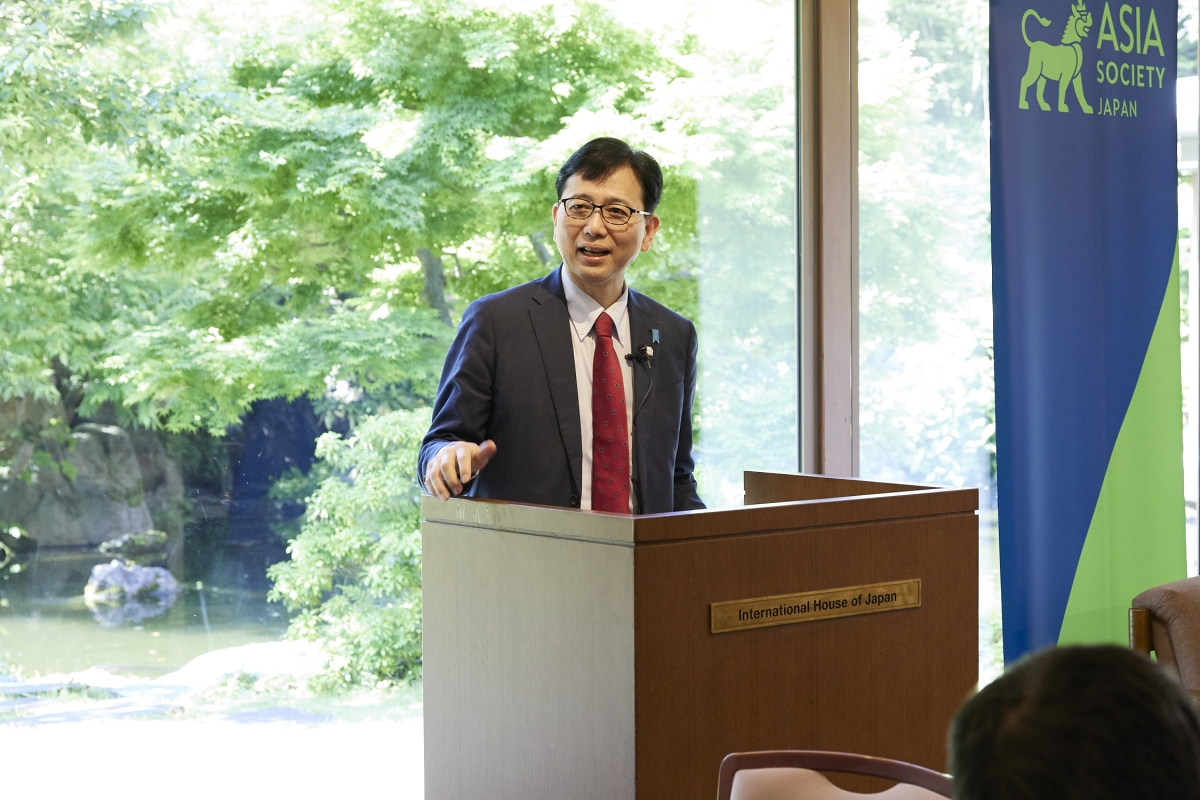
Promoting a new form of capitalism
Prime Minister Kishida points to the three major challenges that we face under capitalism: income gaps, disparities between central and local regions, and climate change. A policy aim is to foster a positive cycle of growth and distribution. Carbon neutrality, structural wage increases, and investing in people are some of his priority policies that will also be addressed at the G7 Summit.
Four core aspects comprise Prime Minister Kishida’s concept of a new form of capitalism: 1) “Digital Garden City Nation”; 2) economic security; 3) innovation; and 4) climate change and clean energy. The Digital Garden City Nation initiative seeks to harness digital technologies to close rural-urban gaps and in the international context includes exporting smart cities. An important aspect of promoting economic security is securing supply chains that are resilient under the new realities of the geopolitical landscape. Innovations will be showcased at Expo 2025 Osaka Kansai. The Asia Energy Transition Initiative (AETI) is a key clean energy initiative under which Japan will support emerging economies in their formulation of realistic transition roadmaps that are tailored to national circumstances.
Realism diplomacy for a new era
Prime Minister Kishida’s diplomatic policy emphasizes the promotion of universal values, including human rights and a Free and Open Indo-Pacific (FOIP). He also attaches importance to protecting Japan’s peace and stability, leading the global community in contributing to humanity and global issues, such as global health and climate change. The Indo-Pacific Economic Framework for Prosperity (IPEF) is an important framework for engaging in such activities.
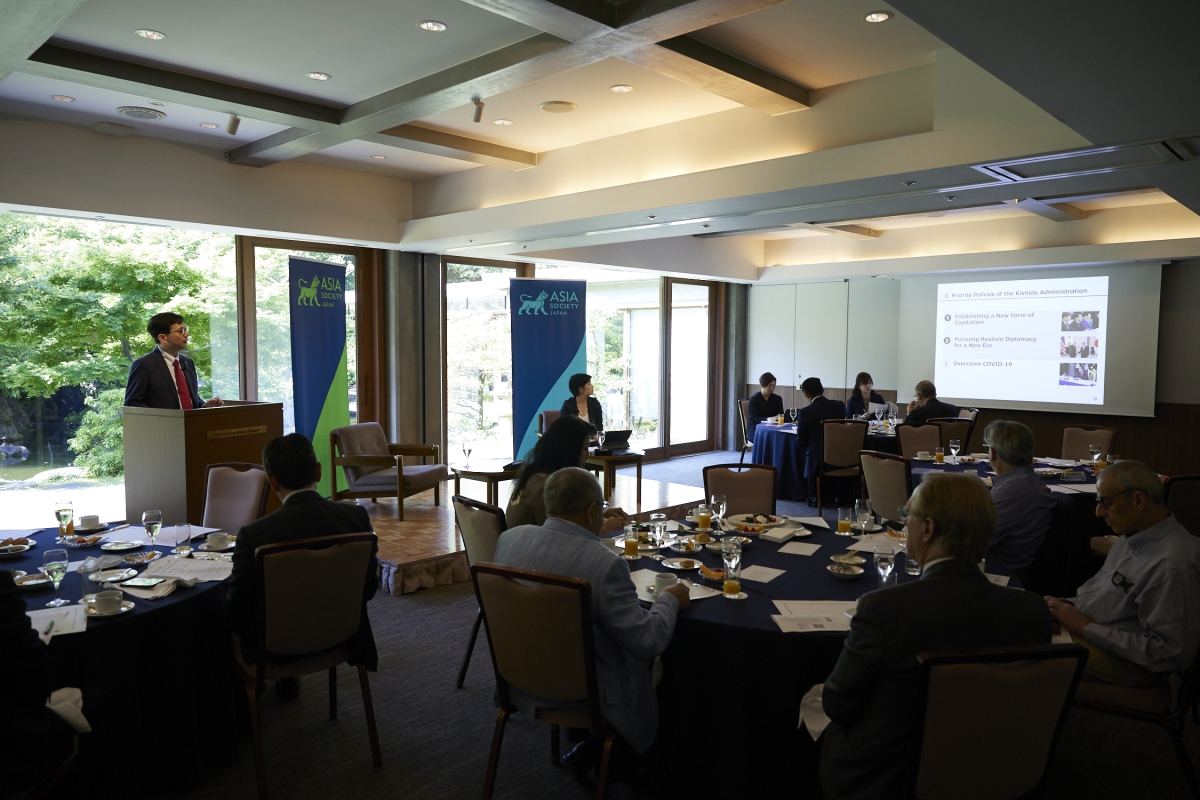
Relations with non-G7 countries
The G7 Summit will have non-G7 guests, namely, Australia, Brazil, Comoros, Cook Islands, India, Indonesia, the Republic of Korea, and Vietnam. These countries represent leadership in various international fora, such as ASEAN, the African Union, and the G20, as well as strategic partnerships, demonstrating the importance of reaching out beyond like-minded G7 countries to address global challenges.
Prime Minister Kishida recently visited the African countries of Egypt, Ghana, Kenya, and Mozambique. The promotion of FOIP was covered in discussions with these strategically important countries, along with rules-based development finance and economic cooperation for sustainable development. Energy and food shortages, financial challenges, and security issues on national borders are some of those issues addressed when reaching out to African countries.
The G7 Agenda
The G7 Summit will likely cover regional affairs regarding the Indo-Pacific region, as well as those on Ukraine. Other countries, including G7 members and Korea, have also come up with Indo-Pacific strategies and Japan seeks to collaborate with these emerging approaches. Nuclear disarmament and non-proliferation are also important topics, and hosting the Summit meeting in Hiroshima is a symbolic event. Discussions are also expected to cover economic security, climate and energy, food, health, development, mainstreaming gender, and digitalization.
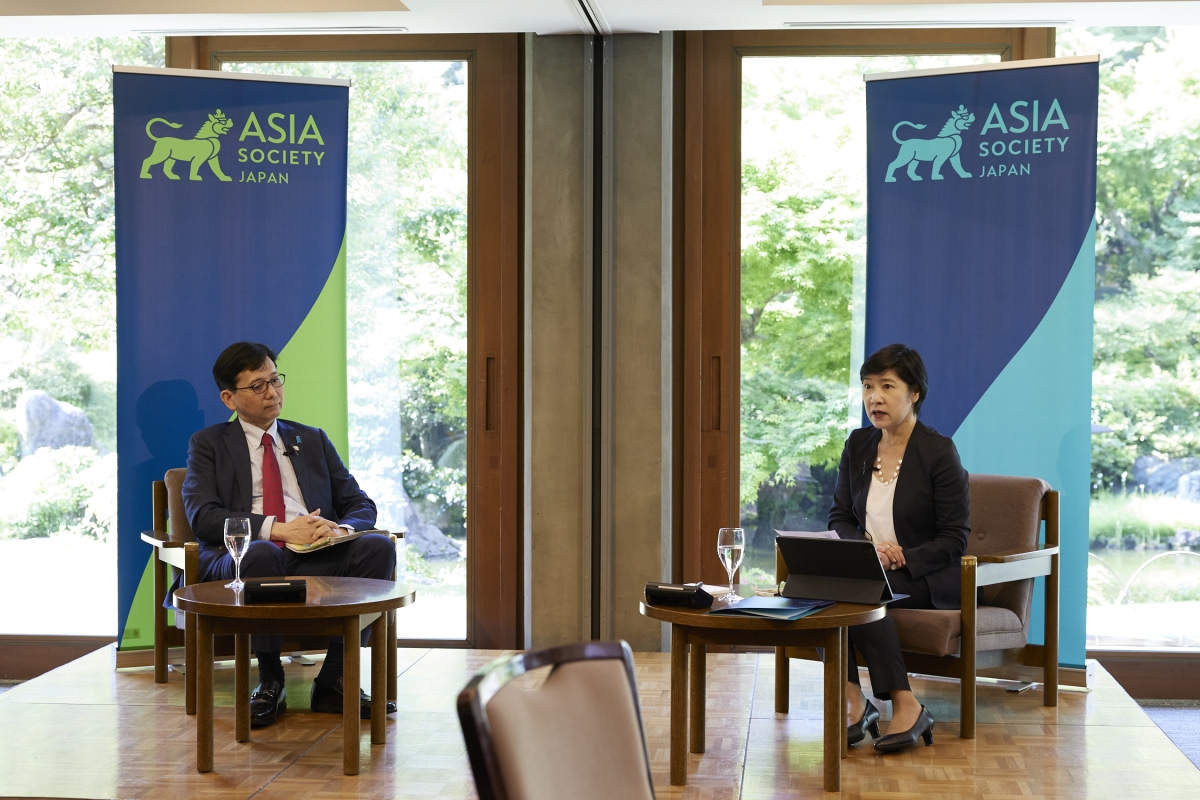
Fireside chat with Dr. Takako Hikotani
Following Mr. Shikata’s initial remarks, Dr. Takako Hikotani (Senior Fellow, Asia Society Policy Institute) engaged him in a fireside chat. They discussed the significance of the G7 for Japan, going over its evolution since its first Summit meeting in 1975, launched with an aim to address emerging economic challenges such as energy security. The G7 is one of Japan’s most important international fora for policy coordination, involving like-minded countries and organizations in shaping rules-based international policy. Prime Minister Kishida attaches importance to bridging between the G7 and G20 Presidencies, as well as other like-minded countries such as the QUAD members, to address common and relevant issues.
Hosting the Summit meeting in Hiroshima, the Prime Minister’s hometown, is also epochal. The first Prime Minister of Japan to attend an NPT Review Conference, Mr. Kishida hopes to create a new momentum by inviting global leaders to Hiroshima.
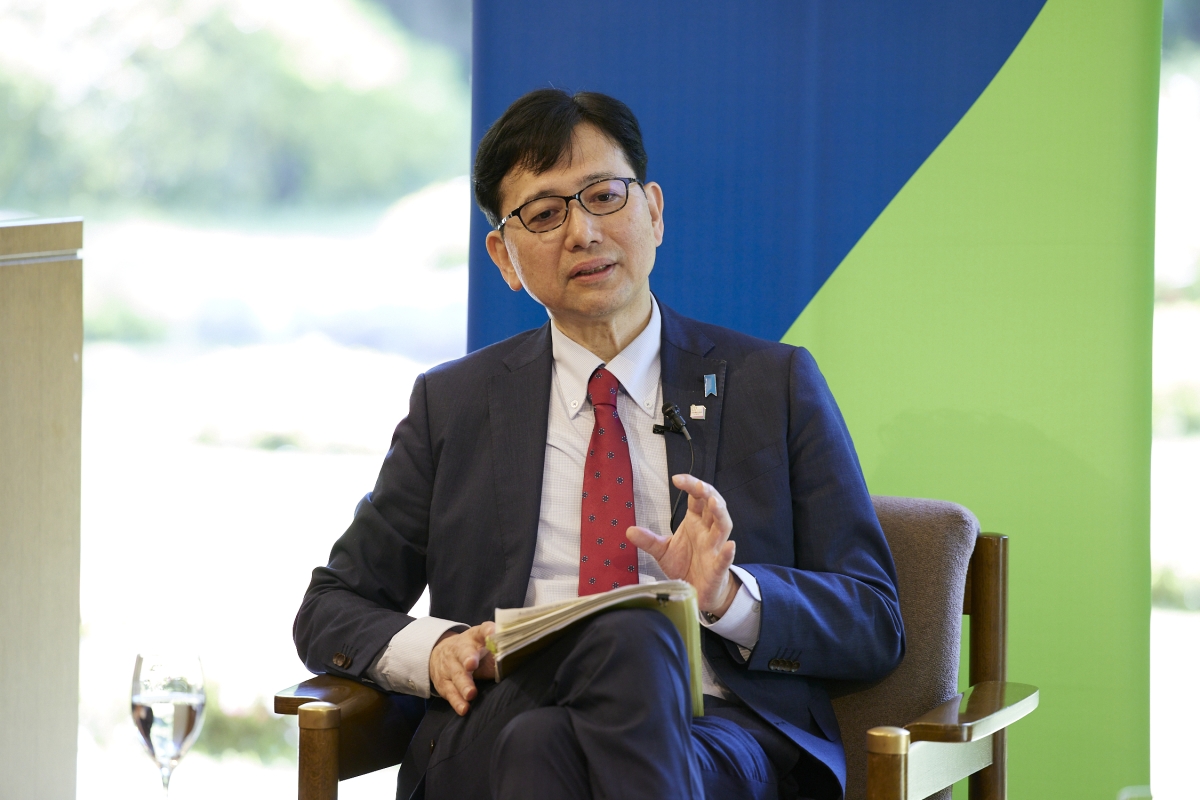
Leading Japan’s strategic communication, Mr. Shikata believes that there is much that the Japanese society can offer to the world. Sharing the belief that the Japanese people need to be better prepared for English communication, Prime Minister Kishida is also enthusiastic about reinstating international student exchange.
The audience was also invited to ask questions and join the conversation. Topics covered included female ascension to the Chrysanthemum Throne, “data free flow with trust,” empowering women, China relations, the Prime Minister’s determination to reach out and work closely with different countries, Japan’s clean energy policy in the context of global trends, and use of the term “Global South.”
